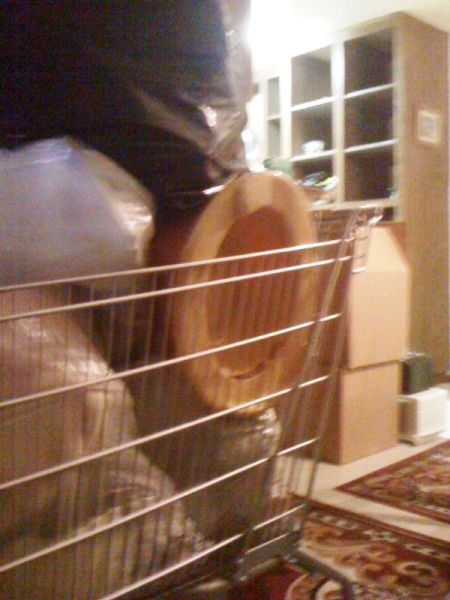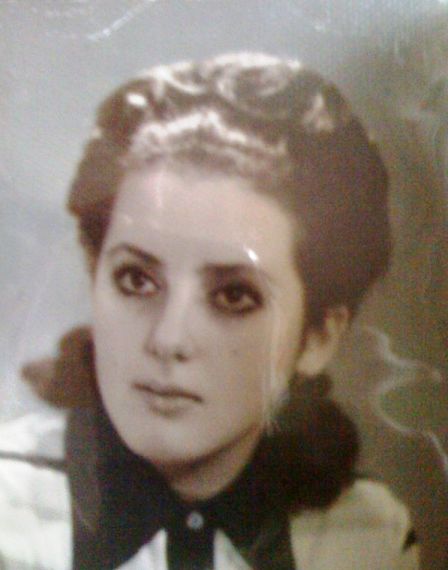Steve Jobs, the legendary co-founder of Apple passed away this week, and the internet exploded with admirers reflecting on how his vision impacted their lives.
Some talked about their first Mac, iPod, or iPhone, and how it transformed the way they communicated or listened to music.
Others sought meaning in Jobs’ passing, musing on death, accomplishment, originality, and vision. I poked a little fun at this hero worship on Twitter, writing:
“There is something odd seeing so many quotes about “being original” and “not living the life of others” being re-tweeted 1000x on Twitter.”
One short post about Jobs struck a nerve with me, written by a blogging friend, “Stay at Home Babe,” and titled “Why I Would Want to Die Young.”
I’ve already heard so much talk about how sad it is that Steve Jobs died at such a young age. I won’t argue with the sentiment, but it certainly got me thinking.
I don’t necessarily want to live until I’m as old as humanly possible. I don’t think I have to hang on until my hips are both replaced and I’m on a hundred medications and my brain has turned to mush.
I want to live a life worth admiring. In whatever capacity that is, for however long that is. I don’t want to waste it. I don’t want to find myself unexpectedly on my death bed, knowing that I didn’t do what I wanted or did less than the best I could with the time I had.
++++
It is customary during the week between Rosh Hashanah and Yom Kippur for Jews to visit family members at the cemetery. My mother and I took the Long Island Railroad to visit the final resting place of my father at a Jewish cemetery in Nassau County.
It was two days before the death of Steve Jobs in California.
It was nice visiting my father on a crisp fall day. I was wearing a red sweatshirt. When I first saw my father’s tombstone I laughed, because as long-time readers of this blog might remember, I “crowdsourced” the epitaph on his stone after he passed away in 2005, until we collectively convinced my mother to include his favorite saying, “Be of Good Cheer” on the stone. My father might go down in history as the first person to have the saying on his tombstone voted upon by the Internet.
Another Jewish custom is to place a stone on the top of the tombstone; it signifies that “you were there.” I picked out two shapely and clean gray stones from the gravel road, and my mother and I placed them on top of the marble slat that marked my father’s final resting place.
++++
I think about my father. I wonder about the dreams and goals that he had as a younger man. Did he do what he wanted? Did he do less than the best he did with the time he had on Earth?
I have no idea.
He worked as a physical therapist at a New York City hospital. He liked his job, but he complained about it during dinner time, especially about the internal politics of a city-run hospital. I think he might have preferred a cushier job at a private hospital, although he probably had more of an impact on the lives of the less-privileged by working at Queens General Hospital.
I assume that “Stay at Home Babe” was being honest in her views about dying young, but I suspect that she is in her late twenties, so she feels that she has plenty of time to accomplish everything in her iPhone scheduler. I think once you reach 35, you are pretty happy if you reached 1/3 of the goals you had in college.
Should we just kill ourselves if we don’t become multi-milionaires by 40?
++++
It is easy to read the obituary of Steve Jobs and see it as a referendum on individuality, focus, and a life-well lived, but I think it is a mistake to think that success in life involves having a specific goal in mind and reaching it. Under that criteria, most of us end up miserable failures. The reality is that our real impact on others is not always easily noticed, or even appreciated. Not every worthwhile life is built upon achieving personal goals. We are all interrelated in so many different ways, that you can never be sure how your actions are affecting others.
On paper, my father will never match the accomplishments of Steve Jobs. Perhaps he didn’t achieve exactly what he wanted in life. But he had an impact on me. And his family. On his patients. In the way that he treated his friends and neighbors.
In social media, we speak a lot about influence. We consider someone with many followers as “influential.” But I have heard stories of strangers talking down someone on Twitter from committing suicide that night. No one remembers the names of those people. But that is real influence!
On Yom Kippur, in temple, a special prayer is added to the Shemoneh Esrei (Amidah), in which the community confesses their sins. All the sins are confessed in the plural (we have done this, we have done that), emphasizing communal responsibility for sinning. So even if you haven’t murdered anyone this year, you still say “We have murdered.”
When I was younger, I used to think this Yom Kippur tradition was bizarre and unfair, but now I appreciate the sentiment. The point is not to diminish personal responsibility, but to remind ourselves that human sins are frequently a by-product of the social bond gone sour. We are all at fault.
But this communal responsibility also has a positive side. We can all take pride when things turn out well.
Did you read Steve Jobs’ obituary? Did you come away thinking only about Steve Jobs? Read the obituary again, this time focusing on the community who helped mold him.
Steve Jobs was adopted:
Steven Paul Jobs was born in San Francisco on Feb. 24, 1955, and surrendered for adoption by his biological parents, Joanne Carole Schieble and Abdulfattah Jandali, a graduate student from Syria who became a political science professor. He was adopted by Paul and Clara Jobs.
Steve Jobs was mentored by a nameless neighbor:
Mr. Jobs developed an early interest in electronics. He was mentored by a neighbor, an electronics hobbyist, who built Heathkit do-it-yourself electronics projects.
Steve Wozniak’s mother brings her son and Steve Jobs together as business partners.
The spark that ignited their partnership was provided by Mr. Wozniak’s mother. Mr. Wozniak had graduated from high school and enrolled at the University of California, Berkeley, when she sent him an article from the October 1971 issue of Esquire magazine. The article, “Secrets of the Little Blue Box,†by Ron Rosenbaum, detailed an underground hobbyist culture of young men known as phone phreaks who were illicitly exploring the nation’s phone system.
A mysterious hacker teaches Steve Jobs his tricks.
Captain Crunch was John Draper, a former Air Force electronic technician, and finding him took several weeks. Learning that the two young hobbyists were searching for him, Mr. Draper had arranged to come to Mr. Wozniak’s Berkeley dormitory room.
An Intel executive backs Apple with $250,000.
In early 1976, he and Mr. Wozniak, using their own money, began Apple with an initial investment of $1,300; they later gained the backing of a former Intel executive, A. C. Markkula, who lent them $250,000.
Did any of these individuals achieve their own personal goals? We don’t know. But there is reason to believe that without these people crossing the paths of Steve Jobs, that he wouldn’t have achieved HIS goals. Again, we don’t know for sure, but would you now want to tell that dorky hobbyist neighbor who mentored Steve Jobs that he would have been better off dead since he didn’t achieve his goal of building a spaceship for NASA? You never know when your action can have an earth-shattering effect on another. It is quite possible that a friendly hello in a supermarket can change the life of the other person. You just don’t know.
Not everything is about YOUR goals.
My father was a loved man. He didn’t make that much money. I’m sure he wished he did better financially. He didn’t get any obituaries written about him in the newspaper. But I know he helped many people with disabilities to walk, and perhaps they went on to do great things spurred on by the care that they received from my father.
I am super-impressed by the vision of Steve Jobs and what he achieved in his short life. But I am just as impressed with someone who lives life, perhaps NOT achieving every single one of their dreams, but loves life itself, and sees it as special. Being kind to others may not get you a mention in the New York Times, but it is a quality that is as essential to the well-being of the community as an iPad. And that it something I try to remember as I live my own life. Thanks, Dad, for teaching me that lesson.











